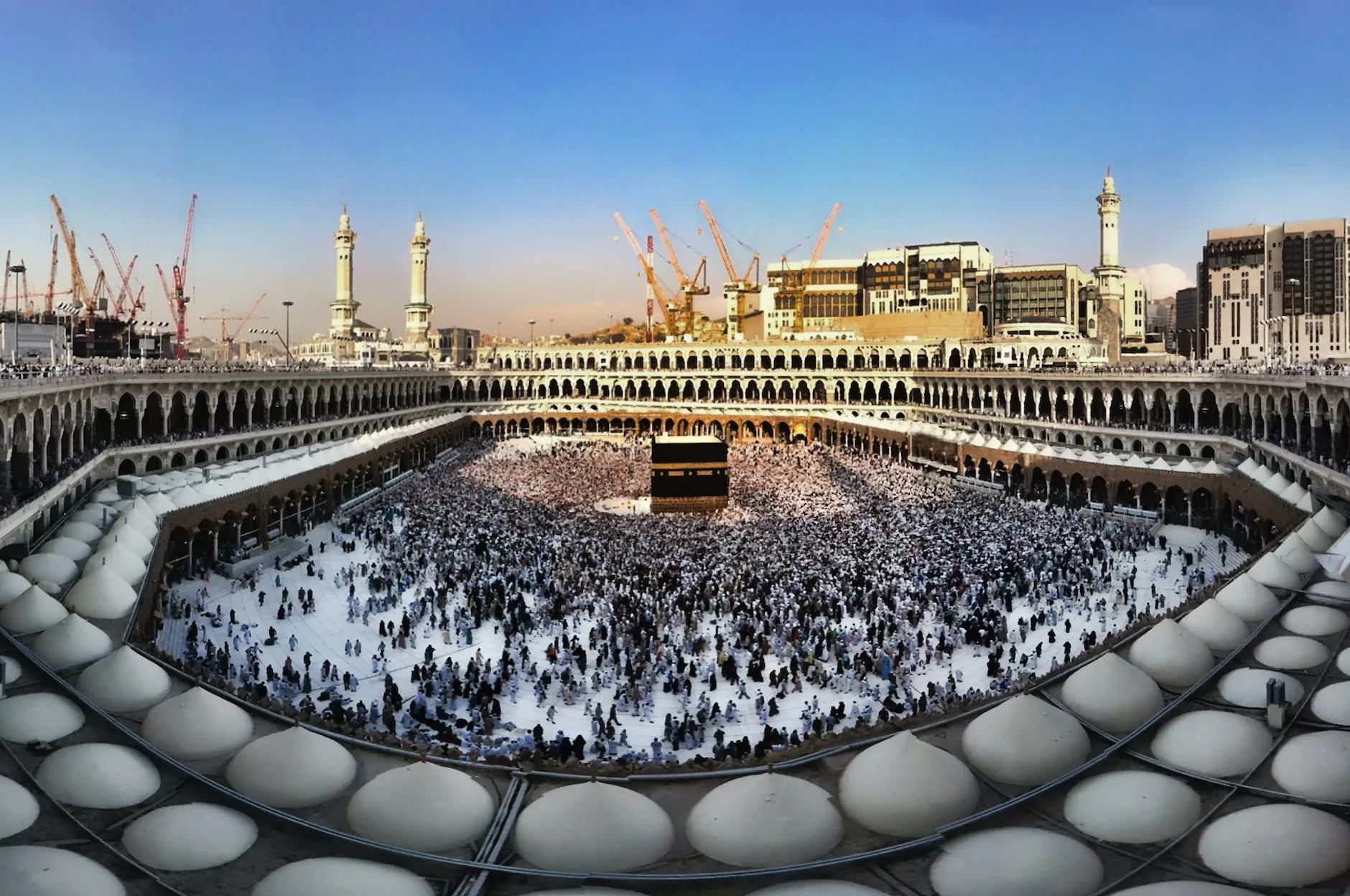Step by Step Hajj and Umrah Guide 2026 | Easy Guide for Everyone

“Pilgrimage to the House is a duty owed to Allah by all who can find a way to it.” — Quran 3:97
If you are planning to go for Hajj or Umrah in 2026, this guide is for you. It will help you understand what to do step by step, so you can do your pilgrimage correctly and safely. Hajj and Umrah are special trips that bring you closer to Allah and make your heart pure.
When Is Hajj in 2025?
Hajj will start on Monday, May 25, 2026. It will last about 6 days until Satarday, May 30, 2026.
- May 25 (8 Dhul Hijjah): Pilgrims travel to Mina (Day of Tarwiyah)
- May 26 (9 Dhul Hijjah): The Day of Arafah — the most important day
- May 27 (10 Dhul Hijjah): Eid al-Adha and the start of the sacrifice
- May 28-30 (11th-13th Dhul Hijjah): Rituals in Mina, including the stoning of the Jamarat
Note: These dates may change a little if the moon is seen on different days.
Step 1: Make a Good Intention (Niyyah)
Before you start, make a clear intention in your heart that you are doing this for Allah only. Say in your heart:
“I am doing Hajj (or Umrah) for Allah’s pleasure.”
Step 2: Plan and Book Your Trip
- Find a trusted travel company that helps with Hajj and Umrah.
- Book your plane tickets early.
- Get your Hajj visa (official permission to enter Saudi Arabia).
- Visit a doctor and get all required vaccinations (like the meningitis shot).
- Prepare money for all costs — travel, food, hotel, and sacrifice.
If you going under Government then they will arrange everything.
Also Read:
- Fasting in the 1st 10 Days of Dhul Hijjah 2025 – A Golden Opportunity for Muslims Worldwide
- Human Personality & Hypocrisy in Islam: Hidden Truths from the Qur’an You Must Know
- Bakra Eid 2025 in India: Exact Date, Traditions & How to Celebrate
- Important Duas for Hajj and Umrah
Step 3: Learn What to Wear and How to Enter Ihram
Ihram is a special state you must enter before doing Hajj or Umrah.
- Men: Wear two white cloths, one around the waist and one over the shoulder.
- Women: Wear simple, modest clothes that cover the body except the face and hands.
- Take a shower and trim your nails.
- Do not wear perfume after entering Ihram.
- Say the Talbiyah prayer loud and clear:
“Labbayk Allahumma labbayk…”
(“Here I am, O Allah, here I am…”)
Don’ts in Ihram:
- Do not cut your hair or nails
- Do not fight or argue
- Do not hunt or harm animals
- Do not wear stitched clothes (men) or perfume
Step 4: How to Do Umrah (If You Do It Before Hajj)
- Enter the Masjid al-Haram in Mecca while in Ihram and make intention for Umrah.
- Walk around the Kaaba seven times (this is called Tawaf).
- Walk between the hills of Safa and Marwah seven times (this is called Sa’i).
- Cut or shave your hair to finish Umrah and leave Ihram.
Step 5: The Important Days of Hajj
Day 1: May 25 (8 Dhul Hijjah) — Travel to Mina (Day of Tarwiyah)
- After morning prayer, travel to Mina.
- Stay and pray there all day and night.
Day 2: May 26 (9 Dhul Hijjah) — The Day of Arafat (Most Important Day)
- Go to the plain of Arafat by midday.
- Pray, read Quran, and ask Allah for forgiveness.
- Stay there until sunset. This day is very special because Allah forgives many sins here.
Day 3: May 27 (10 Dhul Hijjah) — Eid al-Adha and Sacrifice
- After dawn, go to Muzdalifah and pray.
- Collect small stones for the stoning ritual.
- Go back to Mina and throw stones at the big pillar (Jamarat).
- Sacrifice an animal (like a sheep) as a sign of obedience to Allah.
- Cut or shave your hair and remove Ihram.
- Return to Mecca for Tawaf al-Ifadah (another seven rounds of the Kaaba).
Days 4 to 6: May 28-30 (11th-13th Dhul Hijjah) — Final Days in Mina
- Throw stones at the Jamarat every day.
- Pray a lot and be kind to others.
- Rest and prepare to go back home.
Important Do’s and Don’ts During Hajj and Umrah
Do’s
- Always say “Bismillah” before starting any ritual.
- Drink plenty of water and keep yourself healthy.
- Help your fellow pilgrims and smile often.
- Follow your group leader’s instructions carefully.
- Make lots of dua (prayers), especially on the Day of Arafat.
- Keep your passport and money safe.
- Be patient — crowds can be big, and it might be tiring.
Don’ts
- Don’t argue or get angry with other pilgrims.
- Don’t cut your nails or hair while in Ihram unless told to.
- Don’t use perfume in Ihram.
- Don’t push or rush others during rituals.
- Don’t miss prayers or forget to pray on time.
- Don’t bring forbidden items like weapons or drugs.
Frequently Asked Questions (FAQs)
What is Hajj?
Hajj is a special pilgrimage to Mecca that every Muslim must do once if they can. It happens during specific days in the Islamic month Dhul Hijjah.
What is Umrah?
Umrah is a smaller pilgrimage that can be done any time of the year. It is not compulsory but very good and brings great reward.
Can I do Umrah before Hajj?
Yes, many people do Umrah first to get ready for Hajj.
What should I pack?
- Ihram clothes
- Comfortable shoes
- Personal hygiene items
- Prayer mat and Quran
- Medications if needed
How do I keep safe during Hajj?
- Follow health and safety advice.
- Stay with your group.
- Drink lots of water.
- Avoid crowded places if possible.
How to Prepare Your Heart for Hajj and Umrah
- Ask Allah to accept your pilgrimage.
- Pray for yourself and your family.
- Read stories of the Prophet (PBUH) and companions who did Hajj.
- Make peace with others and forgive anyone you have hurt.
- Keep your heart full of love for Allah and His Messenger.
Final Words
Hajj and Umrah are gifts from Allah that bring you closer to Him. Every step you take on this journey is a chance to start fresh, ask forgiveness, and pray for a better life.
May Allah make your Hajj and Umrah easy and full of blessings. Ameen.


